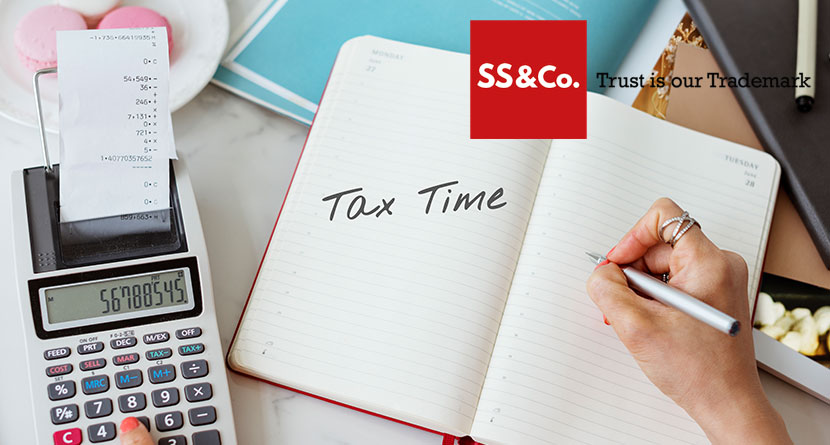Dubai is often described as “tax free,” but that phrase hides important details. The UAE does not levy personal income tax on individuals. That fact explains much of the popular shorthand. At the same time, the UAE has introduced corporate tax rules, VAT and international measures that affect companies and some types of income. Understanding which incomes are taxed, when taxes apply, and when a resident or business genuinely benefits from 0% outcomes requires clear advice from a tax consultant in Dubai and close work with the best chartered accountant in Dubai.
No federal personal income tax
Individuals living and working in Dubai do not pay federal personal income tax to the UAE. This is the single fact that most people mean when they say Dubai is tax free for foreigners. The absence of personal income tax makes take-home pay higher than in many other countries and is a major reason foreign professionals choose to work in the Emirates. Even so, personal tax neutrality in the UAE does not eliminate other taxes and obligations that expatriates must manage, both locally and in their home jurisdictions. For these reasons, advice from a tax consultant in Dubai and from the best chartered accountant in Dubai is often necessary when expatriates have ties to other countries.
Corporate tax: headline 0% is conditional
The UAE introduced a federal corporate tax that applies to financial years starting on or after 1 June 2023. The law applies a 0% rate to taxable income up to AED 375,000 and a 9% rate above that threshold for ordinary taxable persons. This change means companies with profits above the threshold now face a material tax charge. Some free zone entities can still achieve a 0% effective rate on qualifying income, but only if they meet strict conditions set out by the authorities. That technical framework is complex and it is common for businesses to engage a tax consultant in Dubai and the best chartered accountant in Dubai to confirm eligibility and maintain the required substance.
Free zones and qualifying income
Free zones historically offered tax and customs advantages and continue to be attractive to foreign investors. Under the corporate tax rules a free zone person can benefit from a 0% corporate tax rate on qualifying income, but there are precise tests to pass. These tests cover the nature of the income, the economic substance in the UAE, de minimis thresholds for non-qualifying revenue and other conditions defined by cabinet decisions. A company that simply sits in a free zone is not automatically tax exempt. The difference between being registered in a free zone and being a qualifying free zone person is material and is a principal reason why a business will work with a tax consultant in Dubai and the best chartered accountant in Dubai to document position and process.
Indirect taxes and other levies that affect foreigners

Dubai and the UAE levy indirect taxes that affect both residents and visitors. The standard rate of VAT in the UAE is 5%, and it applies to most supplies of goods and services. Excise taxes apply to specific goods such as tobacco and sugary drinks, and municipal or tourism fees apply in some sectors. These indirect taxes mean that living costs and business operating costs include taxes even though personal income is untaxed. Firms and individuals should ensure VAT registration, VAT compliance, and correct invoicing where applicable by consulting a tax consultant in Dubai or the best chartered accountant in Dubai.
Cross-border issues and home-country tax rules
A foreign national who lives or works in Dubai must consider the tax rules of their home country. There are a number of countries that impose taxes depending on the residency or nationality of the person, and in addition, some expatriates continue to have tax obligations to their home countries even if they are living in Dubai. The presence or absence of double tax treaties, the individual’s residency status, and the duration and nature of work in the UAE all affect liability. For many expatriates, a tax consultant in Dubai is the first step to mapping obligations, while the best chartered accountant in Dubai helps prepare the records needed for foreign filings and treaty claims. Practical cross-border planning reduces the risk of unexpected assessments and clarifies what “tax free” means for an individual in their specific circumstances.
Why you still need a tax consultant in Dubai
The legal text and ministerial decisions that govern corporate tax and free zone treatment are detailed and change over time. A tax consultant in Dubai helps businesses and individuals interpret rules, prepare the documentation required by the Federal Tax Authority, and defend positions if questions arise. The consultant translates law into operational steps that finance teams can implement. A tax consultant in Dubai also helps with residency queries for individuals, cross-border planning, and with the different tax registrations that apply to commercial activities. Engaging qualified local advice early prevents costly rework and ensures that tax positions are defensible.
The role of the best chartered accountant in Dubai
Accurate, timely accounting is the backbone of every tax position. The best chartered accountant in Dubai ensures that accounting records support tax calculations and that reconciliations between financial statements and tax returns are robust. These accountants set up systems for VAT, maintain payroll records where required and prepare the statutory financial statements that underpin corporate tax filings. When a business seeks the 0% free zone outcome or needs to show adequate substance, the best chartered accountant in Dubai documents transactions and prepares the supporting schedules that tax authorities examine. Good accounting reduces audit risk and speeds the tax filing process.
Practical steps for foreigners and companies
Foreigners and businesses should begin with a clear fact-finding step. An initial review with a tax consultant in Dubai determines residency status, identifies taxable activities, and records cross-border ties. Businesses should then engage the best chartered accountant in Dubai to prepare financials and to implement VAT and corporate tax reporting systems. Both advisers should work together to document substance for free zone relief where appropriate and to prepare the annual compliance calendar that modern corporate tax systems require. Acting in this order keeps compliance manageable and protects the practical advantages that Dubai continues to offer.
Looking forward: global rules and UAE policy changes
The UAE is part of international tax conversations and has adopted measures that affect multinationals. The domestic minimum top-up tax and other international agreements mean that large global groups may face a higher effective tax rate in the UAE as part of global rules. At the same time, the UAE is developing incentives and targeted credits to support research and high-value employment. These evolving rules increase the importance of local expertise. Businesses and individuals should work with a tax consultant in Dubai and the best chartered accountant in Dubai to keep their positions current and to take advantage of compliant incentives as they emerge.
Final word: “tax free” needs context
Saying Dubai is tax free is accurate for many individuals when the question is personal income tax. Saying Dubai is tax free for business is only sometimes true and depends on corporate profits, the nature of income, free zone qualification and international rules. Practical clarity comes from a combined review by a tax consultant in Dubai and the best chartered accountant in Dubai. Those two partners turn an attractive tax headline into a dependable, compliant position.




